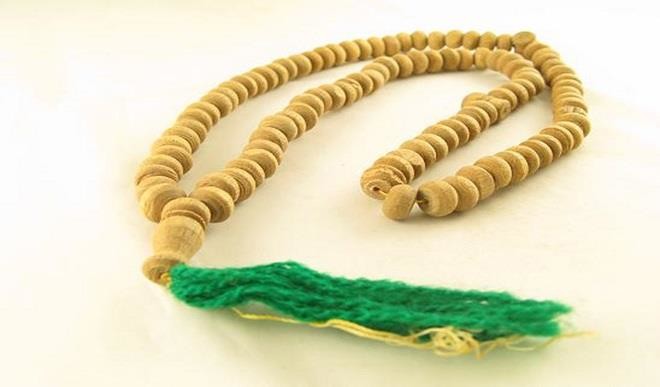Devoutions in Dhul-Hijjah
The month of Dhul-hijjah is here. It is the twelfth and last month in the Islamic lunar calendar. It is the month during which pilgrimage (Hajj) which is the fifth pillar of Islam is performed. One of the virtues of Dhul-Hijjah in Islam is its mention as one of the months during which holy war […]


The month of Dhul-hijjah is here. It is the twelfth and last month in the Islamic lunar calendar. It is the month during which pilgrimage (Hajj) which is the fifth pillar of Islam is performed. One of the virtues of Dhul-Hijjah in Islam is its mention as one of the months during which holy war is prohibited. Allah (SWT) states in Qur’an 2:217 “They ask thee concerning fighting in the prohibited month; Say: Fighting therein is a grave (offence)…”Other months (called ‘al-Ash-hurulHurum’ in the Qur’an)in which holy war is prohibited includeDhul-Qa’dah (which is the month precedingDhul-Hijjah); Muharram (which is the month succeeding Dhul-Hijjah); and the month of Rajab.
The first ten days of Dhul-Hijjah have been described by the Prophet (SAW) as virtuous. It is reported on the authority of Ibn Abbas (RA) that the Prophet (SAW) said“No days are as virtuous and beloved to Allah in the observance of righteous deeds as these days (i.e. the first ten days of Dhul-Hijjah)”. When this was heard, some people asked the Prophet (SAW) whether the virtuousness of these ten days supersedes that which obtains in fighting holy war (Jihad) in the cause of Allah. The Prophet (SAW) replied in the affirmative; explaining that the virtues in the first ten days of Dhul-Hijjah exceed those of fighting in Allah’s cause except for a man who left home to fight in the cause of Allah with his life and wealth but returned with nothing (of his wealth).
It is also reported on the authority of Ibn Umar (RA) that the Prophet (SAW) “No day is greater in virtue and more beloved to Allah for a believer to worship Him than the first ten days of Dhul-Hijjah. Muslims are, therefore, exhorted to domuch of Tahlil (saying of: La ilahaillallah); Takbir (saying of: Allahu Akbar); and Tahmid (saying of: Alhamdulillah). Ibn Abbas (RA) explains that the verse “…And celebrate the name of Allah through the days appointed” as in Qur’an 22:28 refers to the first ten days of Dhul-Hijjah.
Imam Bukhari relates that Ibn Umar (RA) and Abu Hurayrah both used to glorify Allah (SWT) saying ‘Allahu Akbar’ even as they went to the market during the first ten days of Dhul-Hijjah. Imam Attirmidhi, IbnMajah and al-Bayhaqi all relate on the authority of Abu Hurayrah (RA) that the virtues of worshipping Allah in the first ten days of Dhul-Hijjah are beloved to Allah (SWT) so much that fasting for a day in the period is equivalent to fasting for a year just as standing in worship for a nightduring this period is equated to standing in worship on the Night of Power (Laylatul-Qadr).
The ninth day of Dhul-Hijjah which is Arafat Day in which Muslims on pilgrimage to the holy city of Makkah stand on mount Arafat is another special and virtuous day. The Sunnah of the Prophet (SAW) encourages believers to observe voluntary fast on this particular day, which precedes the day Muslims slaughter animals (Big Sallah Day) in sacrifice and in submission to Allah (SWT). Fasting on Arafat day is exclusively for non-pilgrims (i.e. Muslims who are not performing Hajj). All the six authentic compliers of hadith (except Buhari and Tirmidhi) relate on the authority of AbiQatadah (RA) that fasting on Arafat Day expiates for two years of sins.Indeed, the Sunnah of the Prophet (SAW) encourages Muslims, who can, to observe voluntary fast during the entire period of first ten days of Dhul-Hijjah.
Let us as Muslims take good advantage of this season with the same enthusiasm we demonstrate in the last ten days of Ramadan.It is a season of worship; a season to get closer to Allah (SWT) with acts of devoution.Dhul-Hijjah is a period for Muslims to seek forgiveness of their sins through sincere repentance. Allah (SWT) states in Qur’an 28:67 “But whoever had (in this life) repented, believed and worked righteousness, will have hopes to be among those who achieve salvation)” Let us also endeavour to spend part of the nights in these ten days of Dhul-Hijjah in observing superogatory (nafilat) prayers.
During these ten days, we are encouraged to spend in charity; to share with the poorpart of what Allah (SWT) has given us. The amount is not what matters but the spirit behind it. Allah (SWT) states in Qur’an 65:7 “Let the man of means spend according to his means, and the man whose resources are limited should spend according to what Allah has given him. Allah puts no burden on any person beyond what He has given him…” Charity in the language of the Qur’an is “a beautiful loan to Allah”. What a most beautiful ‘loan’ when Allah returns it to us!
It would be to own credit if, during this holy season, we also increase our recitation of the Qur’an. We may add few minutes or few pages to our usual recitation. Those who never had a routine could seize this opportunity to startthe good habit which is worth the while. Let us observe fast in this virtuous period of Dhul-Hijjah and engage much in the glorification of Allah’s beautiful names.Let us turn to Allah (SWT) in true repentance from our sins; promising to, henceforth, be righteous.
Let us pray to Allah (SWT) to guide our present crop of leaders; giving them the wisdom to find effectivesolutions to our socio-economic predicaments. Let us seek Allah’s intervention in the critical challenges that are bedevilling us as a nation including corruption,insurgency, kidnapping, cattle rustling, inflation, unemployment, regional agitations, and secession threats. May Allah (SWT) grant us the ability to take advantage of the virtuous days in Dhul-Hijjah, amin.
